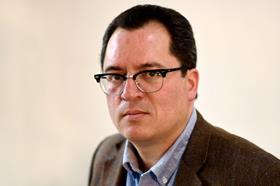The Gazette’s clinical negligence roundtable discussion took place the day after my eldest daughter’s birthday. She is away at university, experiencing the joys and challenges of negotiating life as a young adult. It’s a worry, a pleasure and a privilege to observe and be a part of her progress.

But if events had unfolded just a little differently 19 years ago then her life, and our lives as her parents, would be very different. Our lives would be like those of many of the clients of the claimant lawyers at the Gazette’s clinical negligence roundtable.
In summary, my wife was left unmonitored, indeed unattended, for hours during labour.
And when the midwife was found (by me, running round hospital corridors in search of her), it was discovered that the umbilical cord was around my daughter’s neck. The result was a crash caesarean – and the alternative to what then happened very quickly, brain damage for my daughter.
I know we dodged a bullet that day, because similar scenarios account for a large proportion of the NHS’s £2.2bn bill for clinical negligence cases.
That £2.2bn figure is one parliament’s health and social care committee, and its chair Jeremy Hunt MP, have in their sights. And the department of health and social care is listening, calling the figure ‘a significant burden on the NHS’.
It was the birth of our second daughter – severely disabled through a genetic condition – that brought us into the everyday ambit of families whose children were disabled by clinical negligence, and whose very serious needs require serious, and expensive, levels of support.
They have ‘pay outs’ that reflect this. Many instructed lawyers to represent them in their claims against NHS trusts, several against the trust where our eldest daughter was born.
They did not bring their claims because, as Guardian columnist Polly Toynbee recently suggested, they saw a personal injury ad on daytime TV. That take is as glib as it is offensive and wrong.
The simple truth is that disabled children are expensive – from necessary home adjustments to therapies that keep them well and may even help them make progress.
Here’s a simple measure of the financial impact of serious disability. Our youngest daughter, who attends a secondary special school, is not entitled to free school meals. But so many of her fellow pupils qualify for free school meals, because of low household income, that the school lacks an administrative mechanism for us to pay.
As well as everything costing more, disability hits income too.
So I both know and see what life is like without a ‘pay out’. It is quite clear to me that where someone has caused the situation – through negligence – that a payment to cover needs that result from negligence is right and appropriate.
There is another idea gaining traction at the moment. That is that it is wrong that a settlement figure is based on ‘private’ provision of therapies and services, on the grounds that publicly-run services should be used.
Anyone who relies on these publicly funded services can tell you the flaw here. It is not just that they have been subject to a decade-plus of austerity, and being thinly stretched are rationed through poor availability. (They are.)
It is also a fact that these services too often aren’t even commissioned by public bodies. It takes an act of misty-eyed, sentimental delusion to think that public sector bodies are simply doing their best. Deliberate decisions are taken which cancel or make inaccessible services that support disabled people. Public bodies like councils prioritise other things, even breaching law and guidance to do so.
Trying to secure support and services in this context can feel like a hostile environment.
There is a further side debate currently being promoted about whether it is right that needs caused by something other than negligence get the ‘Cinderella’ service, whereas comparable needs caused by negligence receive better support through a settlement.
This is an interesting point. But I can say with absolute conviction that bringing victims of clinical negligence into my world of poor services is not a satisfactory solution to this oddity.
It is noticeable that the arguments that frame clinical negligence cases as a ‘drain on the NHS’ are being promoted by people who have not experienced the fallout from clinical negligence, or acted for victims of negligence - or even by those lawyers who act for medical professionals and trusts defending claims.
The arguments are made by people who don’t know, don’t care, or won’t listen.
Read the Gazette's clinical negligence roundtable discussion here.































3 Readers' comments